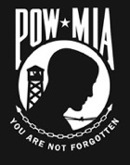 |
- OTHER SERVICES VOICES:
- MARINES
 - NAVY
 - AIR FORCE
 - ARMY
 - COAST GUARD
 - POLICE
|
An up close and personal interview with U.S. Navy Veteran and Togetherweserved.com Member:
MCPO Robert Rowe U.S. Navy (Ret) (1959-1978)
WHAT INFLUENCED YOUR DECISION TO JOIN THE MILITARY?
 Several of my uncles and cousins served in the military--some Army, some Marines, some Navy, and some Air Force. After I graduated from high school in 1959, I was torn between the service and college. I only had a partial scholarship for college and I didn't want my parents to spend their savings on my tuition, so I decided to join the Navy. Truthfully, I chose the Navy because I didn't relish the idea of digging foxholes, which I had done in the California Cadet Corps in high school. Also, I had never been outside of California and I wanted to see some of the world. Looking at my boot camp graduation picture, I can't believe I looked so young! Several of my uncles and cousins served in the military--some Army, some Marines, some Navy, and some Air Force. After I graduated from high school in 1959, I was torn between the service and college. I only had a partial scholarship for college and I didn't want my parents to spend their savings on my tuition, so I decided to join the Navy. Truthfully, I chose the Navy because I didn't relish the idea of digging foxholes, which I had done in the California Cadet Corps in high school. Also, I had never been outside of California and I wanted to see some of the world. Looking at my boot camp graduation picture, I can't believe I looked so young!
WHAT WAS YOUR SERVICE CAREER PATH?
After boot camp at NTC San Diego I went to NATTC Memphis for 10 months of Aviation Fundamentals and AT "A" School. Then I went to VT-22 in NAAS Kingsville, TX, for two years. After I finished AT "B" School in Memphis, I spent most of the rest of my career home-ported out of San Diego. I served in a number of squadrons: VAW-11, VAW-11 Det. C, RVAW-110, VP-31 and VAW-116. I served in a number of squadrons: VAW-11, VAW-11 Det. C, RVAW-110, VP-31 and VAW-116.
I went on several cruises on the USS Kitty Hawk (CVA-63) and the USS Coral Sea (CVA-43) as an Aviation Electronics Technician, reaching the rate of ATCS (E-8). I then switched ratings to the (then) new Master-At-Arms rating, eventually achieving the rate of MACM (E-9).
After the Air Force Security Police School, I completed several schools run by the FBI, DEA and other law enforcement agencies. I served as the Chief Master-At-Arms and Chief Investigator on board the USS Oriskany (CVA-34) until it was decommissioned. I then became the Chief Master-At-Arms and Chief Investigator on board the USS Tarawa (LHA-1).
I also worked for the Investigations Department at NAS Alameda and was on an Oakland County inter-service narcotics task force.
For about 5 years, I was Reserve Sergeant on the Coronado Police Force in Coronado, CA.
DID YOU PARTICIPATE IN COMBAT OPERATIONS? IF SO, COULD YOU DESCRIBE THOSE WHICH WERE SIGNIFICANT TO YOU?
 I made several deployments to Southeast Asia during the Vietnam War, earning eight Vietnam Service medals. Almost all of that time was aboard aircraft carriers. I only flew into the bases at Da Nang and Cam Rahn Bay a few times. I made several deployments to Southeast Asia during the Vietnam War, earning eight Vietnam Service medals. Almost all of that time was aboard aircraft carriers. I only flew into the bases at Da Nang and Cam Rahn Bay a few times.
The memory that stays with me to this day is when my friend, AMEC Jack Wright, was killed when his E-2 Hawkeye caught fire and crashed into the sea off the coast of Vietnam. Parts of the plane, the crew's personal effects and Jack's body were recovered by the destroyer escorts that were with us. I was on the four-man recovery team that was helo'd to each of the destroyers to examine/retrieve items from the crash. Jack's body was the only one of the five crewmen that was recovered.
The crash investigators concluded that his body exited the aircraft because he had been out of his seat fighting the fire when the aircraft impacted the water.
WHICH, OF THE VESSELS OR DUTY STATIONS YOU WERE ASSIGNED TO, DO YOU HAVE THE FONDEST MEMORIES OF AND WHY?
 I suppose I have the fondest memories of serving on board the USS Kitty Kawk (CVA-63) and the USS Tarawa (LHA-1) because they were the first and last ships I served aboard. I suppose I have the fondest memories of serving on board the USS Kitty Kawk (CVA-63) and the USS Tarawa (LHA-1) because they were the first and last ships I served aboard.
The Kitty Hawk was my first experience living on board a ship for an extended period of time, although I was an E-6 at the time. Every day, I was amazed by the engineering and technology I came into contact with.
I was on the Tarawa from November 1976 until I retired on Pearl Harbor Day in 1978.
As the Chief Command Investigator, I had access to every space aboard the ship (required a TS Crypto clearance) and I was fascinated by all of the different jobs that were available to young men in the Navy.
FROM YOUR ENTIRE SERVICE CAREER WHAT PARTICULAR MEMORY STANDS OUT?
In one of the cases I worked as an investigator, we were conducting an operation involving a buy/bust of a significant amount of drugs. When we started to make the arrests, one of the "bad guys" ran and I had to chase him on foot. My cardio system was not in good shape because I was a 3-pack-a-day smoker. The only reason I caught him was because he was in worse shape than I was. When I finally caught him, all I could do was lay on top of him until my partner caught up with us in our vehicle.
The next day, I thought about how vulnerable I had been lying there, so I quit smoking. It's been over 33 years since then and I haven't had a cigarette since.
WERE ANY OF THE MEDALS OR AWARDS YOU RECEIVED FOR VALOR? IF YES, COULD YOU DESCRIBE HOW THIS WAS EARNED?
None of the medals (8) and ribbons (12) that I received were for valor. They were basically all for just doing my job.
OF THE MEDALS, AWARDS AND QUALIFICATION BADGES OR DEVICES YOU RECEIVED, WHAT IS THE MOST MEANINGFUL TO YOU AND WHY?
 The medal that means the most to me is the Expert Pistol Medal. I requalified for it four times, finally earning it permanently. The skills I acquired during that time period also served me well as a Reserve Sergeant in a civilian police department and as a Range Officer in both my civilian and military jobs. It has even held me in good stead during recent years when competing in International Defensive Pistol Association (IDPA) matches. The medal that means the most to me is the Expert Pistol Medal. I requalified for it four times, finally earning it permanently. The skills I acquired during that time period also served me well as a Reserve Sergeant in a civilian police department and as a Range Officer in both my civilian and military jobs. It has even held me in good stead during recent years when competing in International Defensive Pistol Association (IDPA) matches.
WHICH INDIVIDUAL PERSON FROM YOUR SERVICE STANDS OUT AS THE ONE WHO HAD THE BIGGEST IMPACT ON YOU AND WHY?
 Bar none, the person who influenced, assisted and taught me the most during my Navy career was O. N. Myers, an ATCS when I last knew him. I first met him when I was an E-6 and then again as a brand-new CPO. He taught me in large part through his excellent example- how to lead men and how to make them be and feel productive. I've lost contact with him over the years, but I sure wish I could share a 6-pack with him! Bar none, the person who influenced, assisted and taught me the most during my Navy career was O. N. Myers, an ATCS when I last knew him. I first met him when I was an E-6 and then again as a brand-new CPO. He taught me in large part through his excellent example- how to lead men and how to make them be and feel productive. I've lost contact with him over the years, but I sure wish I could share a 6-pack with him!
In this picture he's on the left and I'm on the right with our friend ATC Jay Gwin in the middle.
CAN YOU RECOUNT A PARTICULAR INCIDENT FROM YOUR SERVICE THAT WAS FUNNY AT THE TIME AND STILL MAKES YOU LAUGH?
When I was the Chief Master-At-Arms on the USS Tarawa, one of the spaces I was responsible for the security of was the ship's morgue that was up in the triage area. The Medical Department was responsible for the functioning of the space and it's equipment, but I was on the hook for its security, including the cadaver cold boxes. Each time I had a new sailor assigned to the MAA Force I would take him on a tour of our spaces (MAA shack, investigations office, ship's brig, etc.), ending up in the morgue (which had never been used when I was on the ship). During our "inspection," I would ask the new MAA to check out each of the cold boxes, sliding out the cadaver tray in each. On the third box, there was a body under a sheet on the tray.
Just about the time that the new MAA turned to ask me what was up, the body (which was a previously-stowed-away senior MAA) reached up and grabbed the new guy. It took us 10 minutes to calm him down!! I still laugh when I think about that! It's a good thing that the Skipper or the MO never found out about it!
WHAT PROFESSION DID YOU FOLLOW AFTER THE SERVICE AND WHAT ARE YOU DOING NOW? IF CURRENTLY SERVING, WHAT IS YOUR CURRENT JOB?
 While in the Navy, I earned an Associate in Science in Mathematics and Engineering Physics from Southwestern College. I also took a lot of criminal justice courses. After I retired, I obtained a BA in Psychology from San Diego State University in 1980. I then moved to Detroit and obtained an MA in Clinical Psychology (1983) and a Ph.D. in Clinical Neuropsychology from Wayne State University in 1986. I worked in several hospitals as a neuropsychologist, the last as Department Head of Neuropsychological Services at Wyandottee General Hospital in Michigan. In 1987, I opened up a full-time private practice in Clinical Neuropsychology, at the same time consulting at several hospitals. I also taught psychology at one of the local colleges. I finally retired from all work in 2008 due to declining health. While in the Navy, I earned an Associate in Science in Mathematics and Engineering Physics from Southwestern College. I also took a lot of criminal justice courses. After I retired, I obtained a BA in Psychology from San Diego State University in 1980. I then moved to Detroit and obtained an MA in Clinical Psychology (1983) and a Ph.D. in Clinical Neuropsychology from Wayne State University in 1986. I worked in several hospitals as a neuropsychologist, the last as Department Head of Neuropsychological Services at Wyandottee General Hospital in Michigan. In 1987, I opened up a full-time private practice in Clinical Neuropsychology, at the same time consulting at several hospitals. I also taught psychology at one of the local colleges. I finally retired from all work in 2008 due to declining health.
WHAT MILITARY ASSOCIATIONS ARE YOU A MEMBER OF, IF ANY? WHAT SPECIFIC BENEFITS DO YOU DERIVE FROM YOUR MEMBERSHIPS?
The only military organization I belong to is the Fleet Reserve Association. Until I turned 65, I obtained co-pay health insurance from them. (I'm now on Medicare and Tricare). The primary benefit I receive from FRA is their lobbying efforts in Congress. I have been thinking of joining the local VFW.
HOW HAS MILITARY SERVICE INFLUENCED THE WAY YOU HAVE APPROACHED YOUR LIFE AND CAREER?
Probably the biggest benefits I receive from my military service are my abilities to:
(1) Assess individuals.
(2) Solve problems.
(3) Handle stressful situations.
WHAT ADVICE WOULD YOU HAVE FOR THOSE THAT ARE STILL SERVING?
I would strongly advise all young members of the military to OBSERVE those around you. LEARN from those who have more experience than you do -- who can save you many lumps and lots of time, rather than making all the errors yourself. Choose your friends wisely, preferably those with the same core values. Most of all, ENJOY your life. When you get older and grayer, you may wish that you had taken the time to just relish living in all of the various situations in which you find yourself.
IN WHAT WAYS HAS TOGETHERWESERVED.COM HELPED YOU MAINTAIN A BOND WITH YOUR SERVICE AND THOSE YOU SERVED WITH?
Reading the various postings and comments brings back many cherished memories from my time in the Navy. I continue to look for old shipmates.
| |
|
Share this Voices on:




|
|
TWS VOICES
TWS Voices are the personal stories of men and women who served in the US Military and convey how serving their Country has made a positive impact on their lives. If you would like to participate in a future edition of Voices, or know someone who might be interested, please contact TWS Voices HERE.
This edition of Navy Voices was supported by:
Navy.Togetherweserved.com
For current and former serving Members of the United States Navy, TogetherWeServed is a unique, feature-rich resource enabling Naval personnel to re-connect with lost Shipmates, share memories and tell their Navy story.
To join Navy.Togetherweserved.com, please click HERE.
|
|